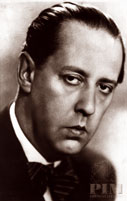
The Today programme has been broadcasting a poem each from the shortlisted poets. They've got through six so far. I will be either tomorrow or Monday morning, but we'll all be there for a little while. On the Today website you get us all reading three poems each. I have yet to work out what to read for my eight minutes-worth at the QEH itself. Something to do tomorrow.
The readings happen on Sunday at the Queen Elizabeth Hall on the South Bank, and the presentations on Monday at the Wallace Collection (though that's by invitation).
*

Having finished the Márai translation only means I have got to the end of the Hungarian - now comes the comb-through for evenness and energy of style, for consistency, for tone, for the humble typo. It's my favourite part of prose translation - it's where it should become fully literature. That becoming is a fascinating and problematic process, because the literature it is becoming is, of course, English literature. It is already Hungarian literature and nothing I do can change that.
But best be careful! The novel becomes a special sort of English literature, much as Cervantes, Dostoevsky, Chehov, Sebald and all the rest become special sorts of English literature - in the same way as Hamlet in Hungarian becomes Hungarian literature.
Languages are broader and more generous than we think. Our cultures are not locked away behind barbed wire fences, nor are our literatures and languages. Qualities and characteristics persist. An elegant Hungarian sentence will share something of the elegance of an elegant English sentence. An abrupt sentence will remain abrupt. The characters we meet in fiction act and think in ways that refer primarily to their immediate surroundings, but they are not antenna-sprouting exotics. They are recognisably human beings.
Prose is a more international realm than poetry. It does not depend quite so much on density, form, metaphor, association and minuteness. It doesn't lie quite so close to heart of language. It travels further in straight lines. Broadly speaking.
So now Márai is being dressed and equipped to re-enter the malls, bedrooms, cafes, subways and libraries of the anglo-american imagination. Just an hour or so ago I was having an exchange on Facebook with an Italian scholar who had read this book in an Italian translation. She told me that, in the Thirties and Forties, Hungarian literature was much prized in Italy and that some Italian writers actually took on Hungarian names.
The glories of Hungarian romance! The pleasures of Hungarian wit!
Read Márai, and you too will want to become Hungarian. In your own English or American way of course. Márai did spend forty or so years in America himself.
My task is to try to be of assistance to him in his accommodation. And it's an exchange of sorts, even if it's one that is far from evenly balanced. Márai - in a tiny, all but insignificant sense, becomes me and I become Márai. Soon it will be Ciao, Márai. Arrividerci. Jó éjszakát, Night night.
Márai was the morning. This afternoon I was back to judging competitions and writing references.
And now, since last night was not good for sleeping, I am going to bed.

2 comments:
Dear Poet,
I love Marai, and I've read a lot of his books in Greek translation, but also in English and French, but I will expect your new translation of Marai with great anticipation. Another Hungarian writer I would like to see more translated is Antal Szerb, and of course I still would like to see translated in English Krasznahorkai's "Satantango" and his latest one with the very long title, which, at the moment is only translated in German and Soanish. But, reading your blog I learn that you are going to stop translating novels. Please, don't close that beautiful door of marvels to the admirers of such unique and excertional literature in our dark times. Anyway, I would like to end this comment with something pleasant: My warmest and deep wishes for the poetry competition of tomorrow. Simply, I would like to read your name tomorrow as the winner of Eliot's competition! GOOD LUCK, from Eleni
Dear Elei,
Many thanks for your kind words. The other book I am translating is in fact Krasznahorkai's Satantango. I hope to finish by summer.
Antal Szerb does exist in English translation, very well translated by Len Rix.
And many thanks for your kind wishes regarding the Eliot Prize. As you may know I did win it in 2005 so I very much doubt I would win it again. I am extremely pleased just to be on the short list.
As to translating novels, I would like to stop ,or at least take a break. There are things I want to write that I cannot do while working on long translations. My best wishes to you.
Post a Comment